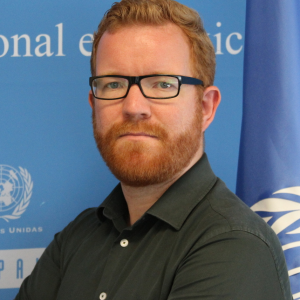Jamaican Economy Panel says careful implementation of a Caribbean carbon pricing regime could help reduce greenhouse gas emissions but should be associated with a redistribution of any revenues
27 September 2021
Today, the Jamaican Economy Panel (JEP) publishes the fifth round of its discussions focusing, this month, on carbon pricing.
In August, the Intergovernmental Panel on Climate Change (IPCC) published the latest instalment of its report series warning of the threat of human-induced climate change. It joined a report from May of this year published by the International Energy Agency that called for rapid and significant reductions in the emissions of greenhouse gasses to try and keep climate change under control.
While the Caribbean is only a minor player in global greenhouse gas emissions (responsible for 0.1% of global emissions in 2018 according to data from the World Bank), it is a region that is actually at exceptionally high risk of climate change. For that reason, it ought to be playing a role at the forefront of the fight against greenhouse emissions in any way it can. One meaningful way to reduce greenhouse gas emissions is by instituting a carbon pricing regime in the Caribbean so that emitters are held responsible for their emissions rather than wait for the public at large to absorb such costs.
The JEP panellists expressed near-universal support for a carbon pricing regime. Still, they did not all agree on the implementation method for such a pricing regime when presented with the choice between an emissions trading regime and a carbon tax. When asked about the objections against carbon pricing, the panelists saw several challenges. They are afraid that production could move away from the region (causing economic damage without reducing greenhouse gas emissions) and are apprehensive about the economic costs. Most importantly, however, they are worried about the redistributive impact of carbon pricing. Dr. Nadine McCloud, Head of the Economics Department at UWI Mona and co-founder of the JEP, explains that "the panellists are rightly worried that producers would pass on increases in costs from a carbon pricing regime to consumers. Such inflationary pressures could reduce welfare, especially for those consumers that are already financially constrained. Moreover, this inflationary burden would be particularly unfair for the poorest, whose consumption patterns tend to have the lowest carbon impact and, further, are less able to absorb such cost increases. As such, any carbon pricing regime should redound the most benefits to the people who are the least contributors to this negative global externality, greenhouse gas emissions."
When the JEP panellists considered solutions to the challenges in execution, a consensus appeared. The panellists believe that implementing a fair and efficient carbon pricing regime that redistributes its revenues (through tax credits or lower taxes, for example) would overcome the worries expressed earlier. Such redistribution would increase public support as well. Other strategies to overcome some of the perceived challenges would be effecting carbon pricing in a grander international scheme, which would reduce the chance of carbon leakage and a gradual employment thereof. Vincent Sweeney, Head of the Caribbean Subregional Office of the United Nations Environmental Programme explains that “The implementation of a carbon pricing regime would certainly help to reduce the emission of greenhouse gases, especially if it is implemented in a coordinated way in the Caribbean. As greenhouse gas emissions are concentrated in areas such as electricity generation and transport, these may be less prone to suffer from carbon leakage as they are activities that are difficult to move from the region.”
Responding to the survey results, Dr. Garry Conille, United Nations Resident Coordinator, shared that "It is certain that the global community should do more everywhere to reduce carbon emissions. Despite its low contribution to global greenhouse gas (GHG) emissions, the Caribbean is very much a climate-vulnerable region and should be at the forefront of global policies to reduce greenhouse gas emissions. Looking at the JEP outcomes, I see potential linkages with other sustainable development challenges such as economic inequality. In a perfect world, a redistribution would take place from those with higher carbon footprints to those with a lower carbon footprint while providing an overall incentive to reduce the emission of greenhouse gasses."
The Jamaican Economy Panel is part of a partnership between the United Nations Resident Coordinator's Office (UNRCO) and the Department of Economics at The University of the West Indies (UWI) Mona. The JEP brings together a select group of economic and public sector experts to address monthly socio-economic questions. These questions help to highlight relevant economic issues and the collective expertise of the panellists.
The full results of this month's discussion are available HERE.









